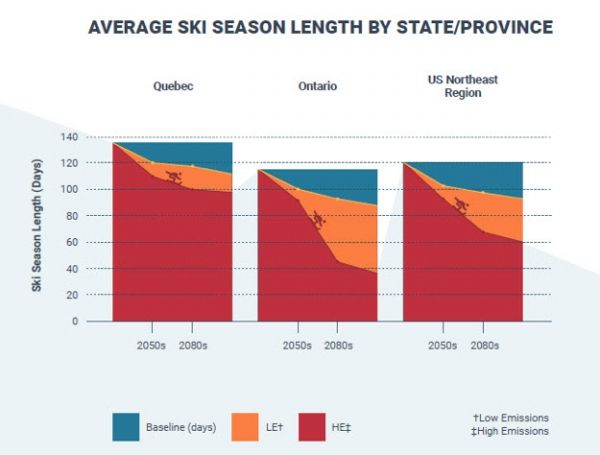As the longest United Nations climate talks on record end with a compromise in Madrid, new research from the University of Waterloo has found that higher emission reduction pledges consistent with the Paris Climate Agreement are needed to preserve ski tourism in Eastern Canada and the U.S.
“The future of our multi-billion-dollar ski industry depends on our climate choices. To preserve it and the thousands of jobs it provides requires us to achieve a low carbon transition,” says Daniel Scott, a and professor and executive director of Waterloo’s Interdisciplinary Centre on Climate Change (IC3). “If we do not achieve the Paris Agreement, in the latter half of the century, only high-elevation areas of the Vermont and New Hampshire and select ski areas in Québec will be able to maintain a 100-day season and open regularly over the Christmas-New Year holiday”.
Climate change will have an important influence on the ski tourism markets in the US Northeast, Quebec and Ontario, but Scott’s research, in collaboration with colleagues from the University of Innsbruck in Austria, and the School of Sports at the Sport University in Beijing, demonstrates the starkly different outcomes of low and high emission futures.
Continue reading at University of Waterloo
Image via University of Waterloo


